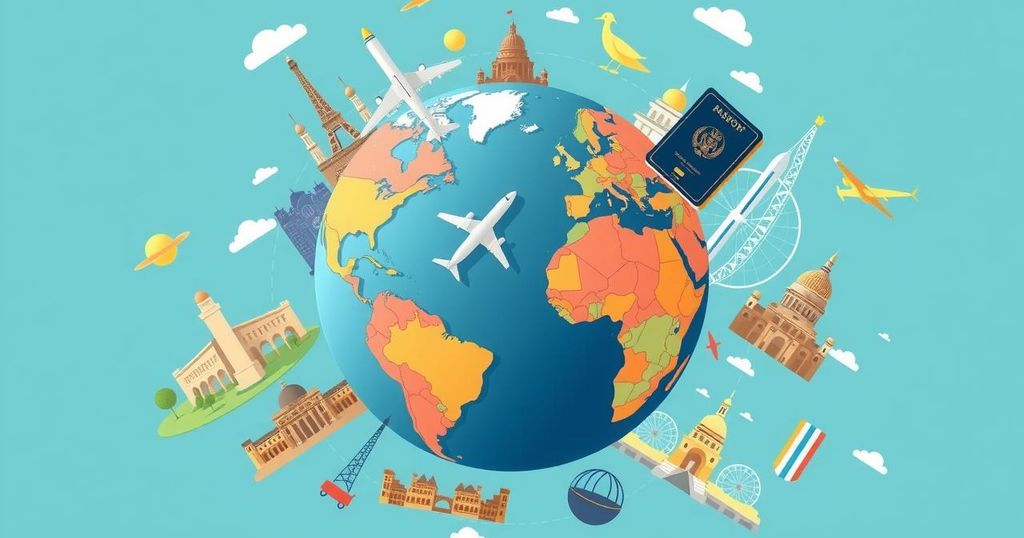Iraq Transitions to Electronic Visa System to Enhance Travel Efficiency

Iraq has replaced its visa-on-arrival system with an electronic visa platform, joining several nations in enhancing security and streamlining entry processes. Travelers from designated countries must now apply for an e-visa before arrival, aimed at reducing wait times and improving immigration compliance. This shift exemplifies a larger global trend towards digital travel solutions.
Iraq has joined India, Brazil, Turkey, Australia, Kenya, and Sri Lanka in transitioning from visa-on-arrival to an electronic visa system. This change signifies a major move towards digitized travel, aimed at bolstering security and streamlining entry for visitors. With this adoption, Iraq seeks to enhance immigration compliance and simplify the application process, aligning with the global trend where e-visas are becoming standard for international travel.
Effective immediately, travelers from certain nations must now obtain an e-visa through the official platform before entering Iraq. This new procedure is anticipated to alleviate wait times at border controls and improve adherence to immigration regulations. Previously, Iraq’s system provided a 60-day visa upon arrival at various entry points, a luxury now replaced by the need for pre-approved e-visas.
Countries affected by this visa-on-arrival change include those in Europe, such as Austria, Belgium, and Germany, as well as nations from other regions, including Australia, Canada, and the United States. Travelers are urged to apply for an e-visa prior to embarking on their journeys to prevent potential disruptions at entry points.
Iraq’s shift towards the e-visa model mirrors a global trend where multiple nations are eliminating visa-on-arrival provisions in pursuit of a more efficient, secure travel experience. This policy adjustment reflects Iraq’s commitment to modernizing its immigration processes while facilitating smoother exchanges for travelers.
Despite tightening entry requirements, Iraq remains dedicated to easing travel barriers. Recently, Iraq established a mutual visa exemption agreement with Indonesia, benefiting holders of diplomatic and service passports. Engaging in dialogue about reducing entry restrictions can serve to strengthen Iraq’s diplomatic and economic relationships.
Among the notable cities in Iraq is Baghdad, which showcases a blend of tradition and modernity. Erbil is recognized as one of the oldest inhabited cities, while Basra’s charming canals reflect its rich maritime culture. Additionally, Najaf and Karbala attract thousands of pilgrims, underscoring Iraq’s significance in the Islamic world. Lastly, Mosul is undergoing a cultural resurgence, highlighting Iraq’s ongoing transformation post-conflict.
Iraq’s decision to implement an electronic visa system marks a significant advancement in its travel policies, aligning it with several other nations that favor digitalized visa solutions. The move aims to enhance security, reduce waiting times, and streamline immigration compliance, reflecting broader global trends in travel. As more countries phase out visa-on-arrival systems, travelers must remain vigilant about securing the necessary e-visas before their trips to ensure seamless entry into Iraq and other destinations.
Original Source: www.travelandtourworld.com







